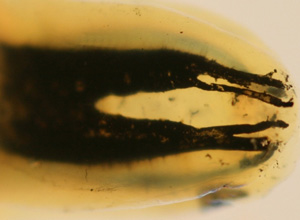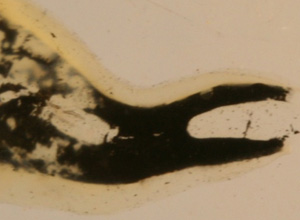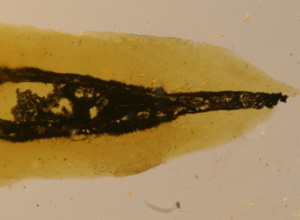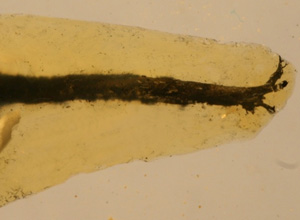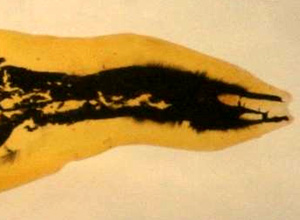
kataria endodontics
Dr Vipul Kataria
BDS (Bristol), DPDS (Bristol), FCGDent, PG Cert RDP (UCL Eastman)
MSc (UCL Eastman), FICD, Specialist in Endodontics
GDC No. 77684
What is Root Canal Treatment?
Q. What is Endodontic Treatment?
A. Endodontic treatment is any procedure that aims to either preserve the health of the dental pulp (commonly known as “the nerve”), or to remove it when it is irreversibly damaged (when it inflamed and cannot repair itself, or has died). The dental pulp resides in hollow spaces inside the roots of teeth (which traverse from the crown of the tooth to the ends of the roots) called the root canal(s). In reality, these spaces can be complex and can contain many “off-shoots”; as such, they are known as “root canal systems”. Common endodontic procedures include root canal treatment, root canal re-treatment as well as surgical procedures.
Q. What is root canal treatment / re-treatment?
A. Root canal treatment is a combination of procedures that aim to eliminate this diseased or dead pulp tissue and to control infection of the root canal system. A root canal re-treatment is performed when an initial root treatment has not been successful.
Q. What does treatment involve?
A. Root canal treatment involves the simultaneous use of small instrument (called files) and fluids to remove the inflamed, dead and / or infected tissue from within the root canal system. The files are used to open up the main channels of the root canal system to allow the fluids to work more efficiently and effectively. Once the root canal system has been cleaned, they are filled up with an inert rubbery material called Gutta-Percha to seal the canals and to help prevent (re)infection. Several small x-rays are taken during the treatment to ensure that the root canal system has been cleaned and filled to its entire length. In re-treatment cases, the old root filling has to be removed first, to allow optimal cleaning of the entire root canal system.
Q. What is the aim of the treatment?
A. The aim of the root canal (re)treatment is to prevent or treat “apical periodontitis”. In simple terms, it is to allow the tissues surrounding the roots of the tooth to stay healthy, or to heal (if the root canal system is infected) so that the tooth can be retained and restored to function.
Q. How long will the treatment take, and why?
A. Typically, treatment requires 1 or 2 visits between 1hr - 1¾hr each session. This is because it is important to allow the fluids we use to try to reach the complexities of the root canal system to allow optimal cleansing. Blockages and narrowing of the main canal can add to the complexity of treatment. Below are some examples of complex root canal systems:
A selection of extracted teeth after they has been rendered transparent. The black part highlights the complexities of root canal system. All of the black areas would need to be cleaned as far as possible if the root canal treatment is to stand a chance of success.
Q. What is the success rate?
A. The reported success rates of root treated teeth are high, but as with any medical or dental procedure there is no guarantee. An approximate success rate will be discussed with you at the time of your endodontic consultation appointment.
Q. What are the alternatives to root canal treatment?
A. The alternatives to root canal treatment are as follows
- Monitor the tooth. In most cases this is not advised, however, there may be certain situations in which this may be appropriate. This can be discussed with you at the time of your consultation appointment.
- Extraction of the tooth with or without filling the resulting gap with either:
- A denture (false teeth);
- A Bridge (using the teeth either side to support a tooth in the gap);
- A dental implant.
Q. Will the treatment be pain-free?
A. The tooth in question will be completely anaesthetised using local anaesthetic. As such, a vast majority of patients do not experience any pain during the treatment.
Q. Will there be any pain / discomfort after treatment?
In most cases, there is only mild discomfort following each treatment, which is easily controlled by taking analgesics such as ibuprofen or paracetamol. On rare occasions (approximately 1-2% of cases) severe pain and/or swelling may occur (known as a “flare-up”). We recommend you contact the surgery immediately if this occurs for the appropriate advice and medication as required.
Q. What is the aftercare?
A. A report is sent to your dentist outlining the details of the treatment, and will include advice on the aftercare. Generally, the back teeth should ideally be restored with either an Onlay or a Crown; both of these cover the biting surfaces of the teeth and are aimed at restoring function, and will also aim to reduce the chances of the tooth fracturing long term.
© Kataria Endodontics - Last modified 27th June 2024
